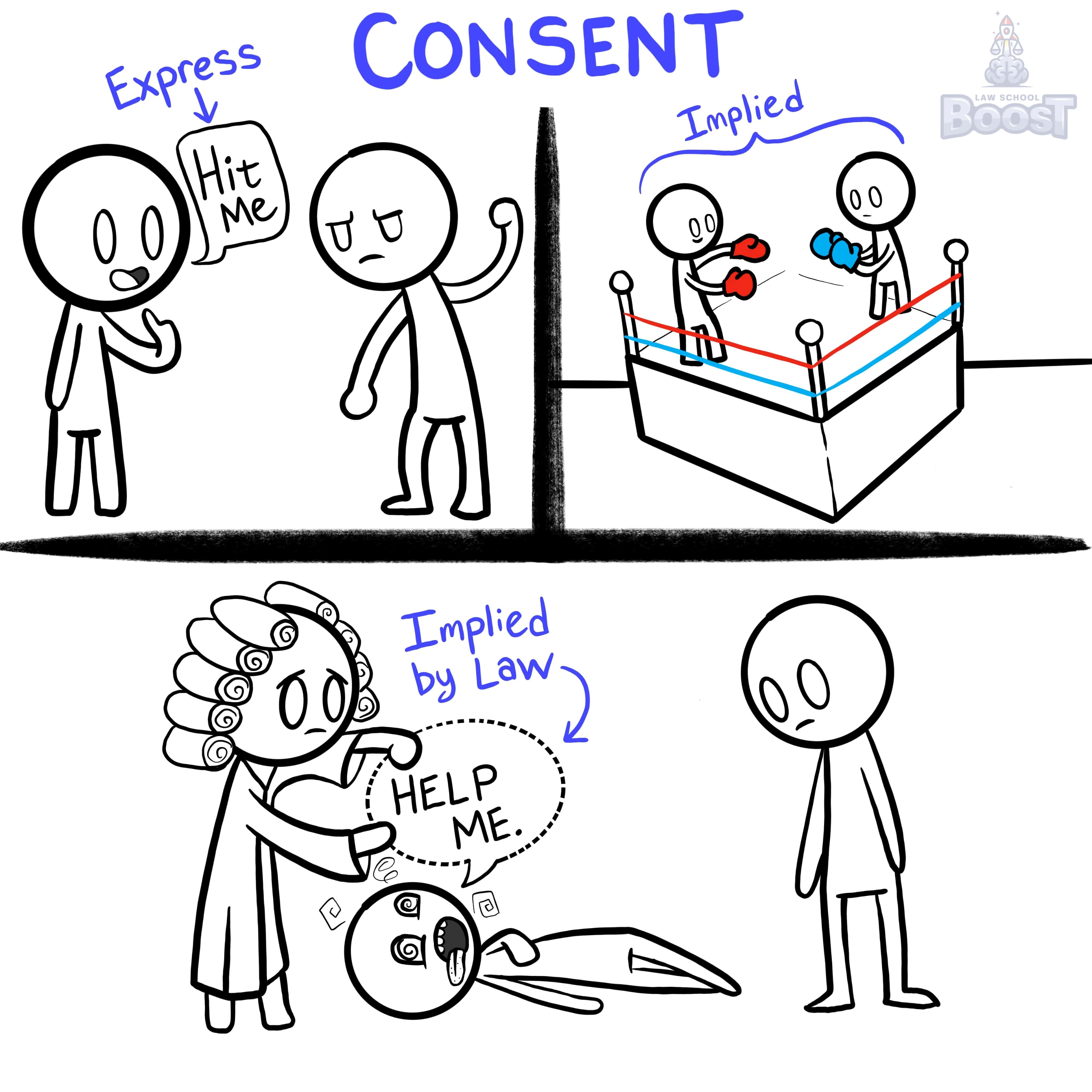👀
Torts • Defenses to Intentional Torts
TORT#013
Legal Definition
Consent is implied where a reasonable person would infer it from custom, usage, or plaintiff's conduct.
Plain English Explanation
Implied consent, sometimes known as apparent consent, is the most common form of consent. Rarely do people expressly, and clearly, outline every aspect, parameter, and limitation of their consent. Instead, people generally assume a level of consent based on circumstance, past history, experience, etc.
Hypothetical
Hypo 1: Sam decides to join a soccer game. Another player passes Sam the ball, and Bob runs full speed at Sam to try and steal it. Bob slides into Sam, causing Sam to fall. Result: Though Sam likely did not want to get hurt, his participation in the game implied his consent to a reasonable level of risk that comes from the game, such as having another player slide into you in an attempt to steal the ball.
Hypo 2: Sam decides to join a soccer game. During the game, Bob grabs a baseball bat and smashes Sam's knees. Result: Though Sam implicitly consented to a reasonable level of risk associated with playing a game like soccer, it is not a usual risk to have another player hit you with a baseball bat. As such, Bob has no valid defense for his battery against Sam.
Hypo 2: Sam decides to join a soccer game. During the game, Bob grabs a baseball bat and smashes Sam's knees. Result: Though Sam implicitly consented to a reasonable level of risk associated with playing a game like soccer, it is not a usual risk to have another player hit you with a baseball bat. As such, Bob has no valid defense for his battery against Sam.
Visual Aids

Related Concepts
In assessing a tort against property, what is a private necessity?
In assessing a tort against property, what is a public necessity?
In assessing a tort against property, what is necessity?
What is consent and its limitations?
What is the shopkeeper's privilege?
When is consent implied by law?
When is defense of others proper?
When is defense of property proper?
When is express consent not valid?
When is self-defense proper?
When may an actor recapture a chattel?


